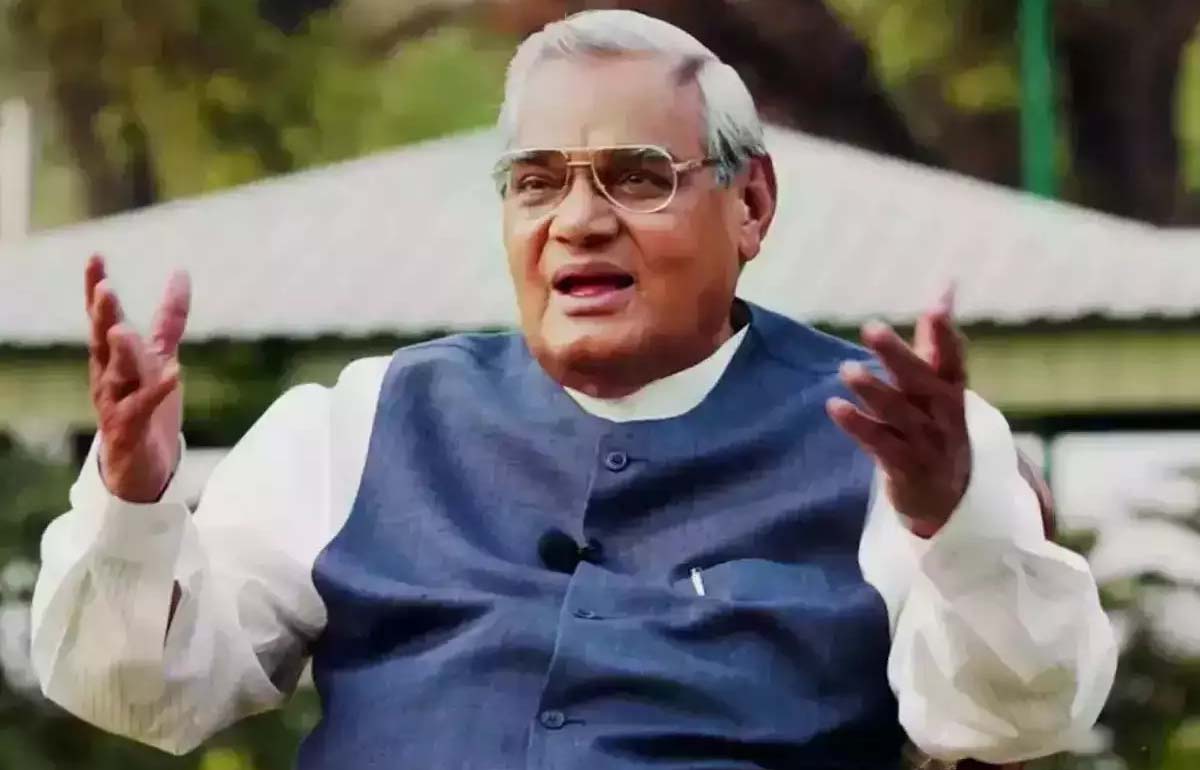Balbir Ram Rattan
Honoring the birth centenary of Atal Bihari Vajpayee offers a chance to celebrate a leader whose influence transcends politics. Born in Gwalior, Madhya Pradesh, Vajpayee emerged from modest beginnings to become one of India’s most esteemed Prime Ministers. A true renaissance figure, he was not only a political figure but also a poet, an orator, and a visionary whose impact on Indian politics, governance, and society continues to inspire future generations.
Vajpayee’s rise to power epitomizes dedication, resilience, and exemplary leadership, making his centenary a moment to reflect on the values he championed.
A Visionary Statesman
Vajpayee served as India’s Prime Minister in three separate terms, with his most noteworthy period from 1999 to 2004. He dreamed of a modern, inclusive, and self-sufficient India, advocating for economic growth that goes hand-in-hand with social fairness.
His administration is best remembered for the ambitious ‘Golden Quadrilateral Project,’ which aimed to establish a comprehensive highway network connecting India’s major cities—Delhi, Mumbai, Chennai, and Kolkata. This initiative not only transformed the nation’s road infrastructure but also positively impacted trade, commerce, and rural connectivity, expediting the transportation of goods and bolstering the economy.
The Architect of India’s Global stature
Vajpayee’s time in office was marked by bold initiatives that elevated India’s presence on the world stage. The 1998 Pokhran-II nuclear tests represented a pivotal moment in India’s history, showcasing the nation’s technological and strategic prowess and solidifying its status as a nuclear power. Despite facing international sanctions afterward, Vajpayee adeptly managed diplomatic relations, ensuring India remained an active participant in the global arena.
His commitment to enhancing India-Pakistan relations is another testament to his diplomatic skills. His notable Lahore Bus Yatra in 1999, where he personally extended an olive branch to Pakistan, was a courageous step towards fostering peace between the two countries. Even with challenges like the Kargil War, Vajpayee’s unwavering belief in dialogue and collaboration as the keys to lasting peace remained steadfast.
His foreign policy was also broad-ranging, seeking to strengthen India’s ties with global powers like the United States and Russia, while forging connections with developing nations.
A Poet at Heart
In addition to his political prowess, Vajpayee was a gifted poet whose work revealed his profound sensitivity and philosophical insights. His poetry, showcased in volumes like ‘Meri Ekyavan Kavitayen’ (My Fifty-One Poems), provides a glimpse into his contemplative spirit. His verses often touch upon themes of love, nature, patriotism, and human experience, offering both solace and motivation in challenging times.
One of his notable pieces, ‘Kadam Milakar Chalna Hoga’ (We Must Walk Together), emphasizes his belief in unity and collective effort. His ability to derive beauty and meaning from life’s intricacies allowed him to connect deeply with people on an emotional plane.
A Consensus Builder
Vajpayee was truly a unifying leader, earning admiration across party lines for his capacity to foster consensus. Leading a coalition government, he showcased remarkable political acumen and interpersonal skills, ensuring harmony among a diverse array of allies. His inclusive approach garnered respect from both supporters and critics, rendering him a distinctive figure in Indian politics.
His often-cited saying, “You can change friends, but not neighbors,” reflects his pragmatic yet optimistic outlook, a guiding principle that shaped his domestic and international policies and made him a bridge-builder in every sense.
Vajpayee’s leadership was rooted in democratic principles, rising above partisan politics to focus on the welfare of the nation, ultimately transcending ideological divides.
Legacy and Inspiration
Defined by an unwavering commitment to nation-building, Atal Bihari Vajpayee’s legacy endures through the transformative policies and initiatives he championed that reshaped India’s infrastructure, economy, and international standing. His contributions, including the Golden Quadrilateral project, economic reforms, and foreign policy achievements, testify to his dedication to the nation.
He embodied decency in public life, demonstrating that politics can serve as a platform for unity rather than division. His ability to balance conviction with compassion and strength with humility distinguishes him as an extraordinary leader.
As we endeavor to build a stronger, united, and prosperous India, his ideals continue to resonate. He taught us that genuine leadership is not merely about wielding power but about serving a greater purpose—one that inspires and uplifts future generations.
Commemorating a Visionary
In commemorating Vajpayee’s centenary, we express our gratitude and hope as we reflect on his remarkable contributions. His journey is a testament to the potency of perseverance and the significance of remaining true to one’s values.
Remembering Atal Bihari Vajpayee transcends mere celebration of the past; it serves as a wellspring of inspiration for the future. His leadership, vision, and values remain relevant today, demonstrating that the true measure of a leader lies not in the length of their service but in the lasting impact they create.


Leave a Reply